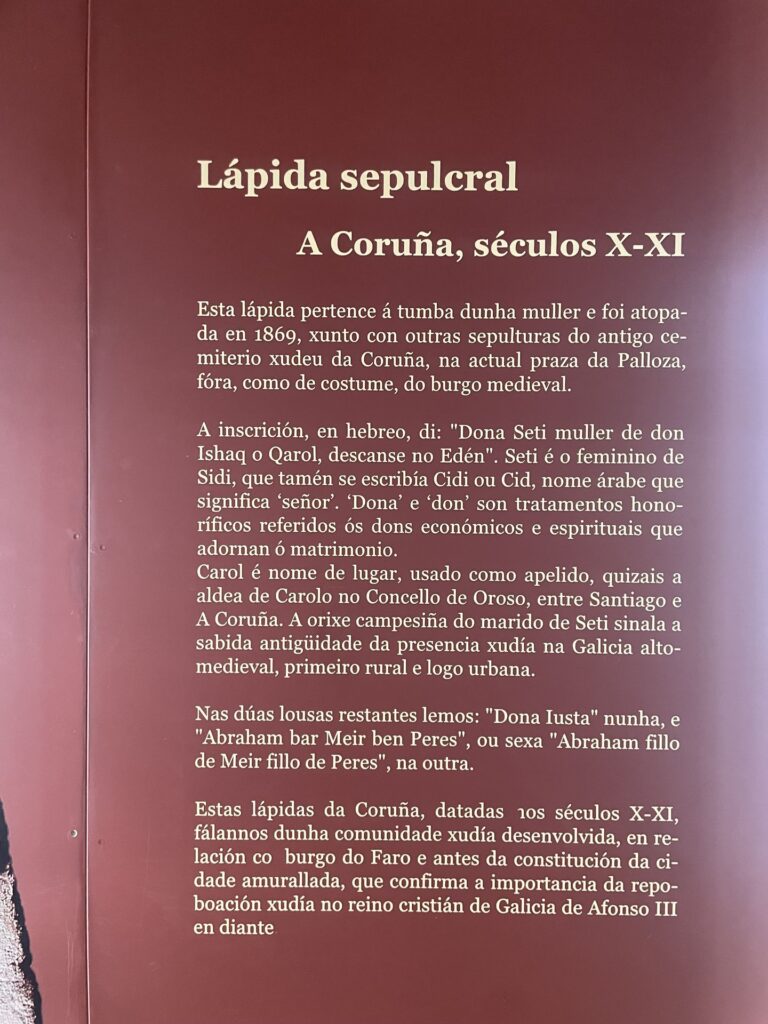
Tombstone A Coruña
This tombstone belongs to the grave of a woman and was found in 1869, along with other graves from the ancient Jewish cemetery of A Coruña, in the current Plaza de la Palloza, outside, as usual, of the medieval town.
A Coruña, 10th-11th Centuries
The inscription, in Hebrew, reads: “Dona Seti, wife of Don Ishaq o Qarol, may she rest in Eden.” Seti is the feminine form of Sidi, which was also written as Cidi or Cid, an Arabic name meaning ‘lord.’ ‘Dona’ and ‘don’ are honorifics referring to the economic and spiritual gifts that adorn marriage.
Carol is a place name, used as a surname, perhaps referring to the village of Carolo in the municipality of Oroso, between Santiago and A Coruña. The rural origin of Seti’s husband highlights the well-known antiquity of the Jewish presence in early medieval Galicia, first rural and later urban.
On the remaining two slabs, we read: “Dona Iusta” on one, and “Abraham bar Meir ben Peres,” meaning “Abraham, son of Meir, son of Peres,” on the other.
These tombstones from A Coruña, dated to the 10th-11th centuries, speak to us of a developed Jewish community, in relation to the town of Faro and before the establishment of the walled city, which confirms the importance of Jewish repopulation in the Christian kingdom of Galicia from the reign of Alfonso III onward.

